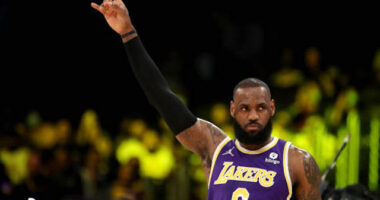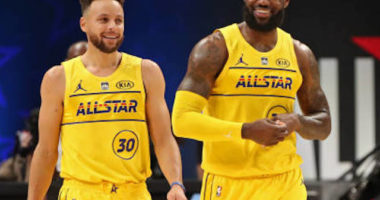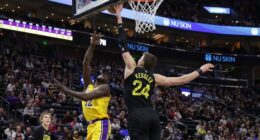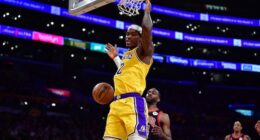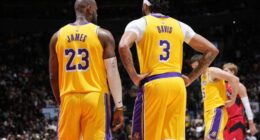2011-12 Grade: C+
When Jordan Hill was traded to the Los Angeles Lakers from the Houston Rockets at the trade deadline in March, he was simply known as the guy who management traded the beloved Derek Fisher for. The Lakers fanbase was shocked to hear about Fisher’s departure from purple and gold, despite being well aware that his contribution on the court had been fading.
There had to be some reason why Mitch Kupchak and Jim Buss would trade away a favorite of the fans, club and players, right? Well, it took a long time for the fans to see firsthand the reasoning behind the trade. Mike Brown deferred to Troy Murphy and Josh McRoberts to be ahead of Hill in the rotation, even though they both had lackluster performances off the bench all season long.
An injury his right MCL did not help the matter either, but Hill knew the type of opportunity that was there was for him with the Lakers and did not want to blow it.
Hill said it was clear that the coach “Just wanted to win.” He also recalled the time that Brown called him at 2 a.m. after the team was blown out in San Antonio on April 20: “I was definitely surprised. We talked a little bit, and he said we need more rebounding and energy, and I just stayed ready. The next game against Oklahoma City I just did what I had to do, and kept going with it.” Hill grabbed 15 rebounds with his 14 points in that double OT Lakers victory, delivering what Brown asked for and more.
In seven games for the Lakers, Hill averaged 4.7 points, 4.4 rebounds in 11.7 minutes per game. In the post-season, Hill averaged 4.8 points, 6.8 rebounds on 18.1 minutes per game. However, his numbers declined in the Western Semifinals against the Thunder compared to his stats in the first round against the Nuggets.
Hill scored high for bringing energy to his teammates while on the court. His effort was very consistent during each outing in a Laker uniform, which is something that unfortunately can’t be said about too many Lakers. His aggression on the glass was critical at times, especially to prevent the Nuggets and the Thunder from getting out on the break in transition. While his performance was short this year with the Lakers, he was one of the brightest spots on an otherwise weak bench.
However, Hill needs to work on his inside shot, as he is a player who essentially works off the ball. He was decent at putting back shots after getting an offensive rebound or being able to open up for a dunk. Yet, he struggles with shots outside of three to five feet from the rim.
Secondly, while his intensity and aggression was a need especially during the first round of the playoffs, he has a tendency to be physical but sloppy. This gets him into foul trouble pretty quick. Even though earning fouls as a bench player isn’t as much of a concern as the starters, if one of the Lakers bigs were also in foul trouble or fatigued, it would cause a concern. Plus, you don’t want to give opponents free points.
“Yeah, I mean it’s one of if not the best organizations in the league and I had a great time in the short time I was here. The staff, the players, everybody … I enjoyed it.” Hill said the Lakers were definitely a good fit for him, but implied that what he’s especially good at – like rebounding – can be used on any team.
